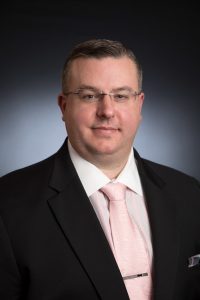Five Things for New PA Students
October 9, 2017
By Kristopher Roy Maday, MS, PA-C

My university’s PA program matriculates in January each year. It is a time for great excitement and expectations by both students and faculty alike. Students are taking their first step toward becoming a PA and faculty get a “blank slate” with a new group of students. This time of the year always has me reflecting on things I wish I would have said or done early on with my students that would have saved some difficult conversations later on. My role as a program director now affords me the opportunity to support the faculty on these topics as well, during discussions that have bubbled up in faculty meetings. In no particular order, here are the five things I think all PA students should hear before starting school.
#1 – For the love of…., please use some form of email etiquette to faculty and staff
For the programs I have been affiliated with, the only form of official communication between faculty/staff and students is the university email. This is not….I repeat not…a longer form of texting. Now I am certainly not advocating for 18th century salutations and voluminous verbosity in an email, but an email with no subject line just saying “where is class today” gets my red up. Part of being in PA school is teaching professionalism and if this is how you interact with your faculty, we assume this will be your interactions with preceptors. When I see this throughout the didactic year, I get concerned about our students’ reputation in the community and how this will affect the program. I prefer the following:
- Subject line – what the email is about
- Salutation – more on this in a minute
- Body – just write what you need to say
- Closing – your (preferred) first name and last name
Every faculty member is a little different, but if you stick to this format in your email communications you will never go “on the radar.”
#2 – Addressing your faculty
Default titles for faculty should be “Mr.”, “Ms./Mrs.”, or “Dr.” Period. No exceptions. Now, that doesn’t mean your faculty will tell you differently once you meet them in class, but your default should be these. There is a line of hierarchy in school that needs to be present for a variety of reasons. Faculty members need to be in charge of their class and, as simple as this sounds, not addressing them in a professional manner undermines their control in the class. Simply ask them how they would prefer to be addressed and use this in all communication.
#3 – Talk to your senior buddy
Nobody knows what you are about to go through better than the person who just went through it. Lean on them. Ask them questions. Ask them for advice. I guarantee they will not mind because, either: 1) they had someone they used, or 2) they wished they did.
#4 – Time management will set you free
You have to figure out some way of keeping everything straight. From just the day-to-day class times, to assignments, to studying….you have to have a method of staying organized. Inevitably, you will feel overwhelmed with everything coming at you, but having a detailed plan of attack will help calm those nerves and keep things on track.
#5 – Take time for yourself
Burnout is inevitable and if you don’t take steps early to counteract this, you will struggle. Figure what makes you happy away from school and stick to a plan. When I was in school, Saturday morning was my time in the anatomy lab and my study time on the weekends. I would get up early and go in before my wife had gotten up. Then, by the time I got home, she would be up and the rest of the day was school free. This was the routine and we stuck to it. Exercise, go out with friends, spend quiet alone time, go to the movies….whatever you need, make sure you schedule time for it (see #4).
I hope these tips will help the new batch of PA students out there. If there is something on this list that has helped you, please share with your colleagues around the country.
Kristopher R. Maday, MS, PA-C, is Associate Professor and Program Director in the Physician Assistant Program at the University of Tennessee Health Science Center in Memphis, Tenn. Contact him at [email protected]. Follow him on Twitter @PA_Maday.
Thank you for reading AAPA’s News Central
You have 2 articles left this month. Create a free account to read more stories, or become a member for more access to exclusive benefits! Already have an account? Log in.



